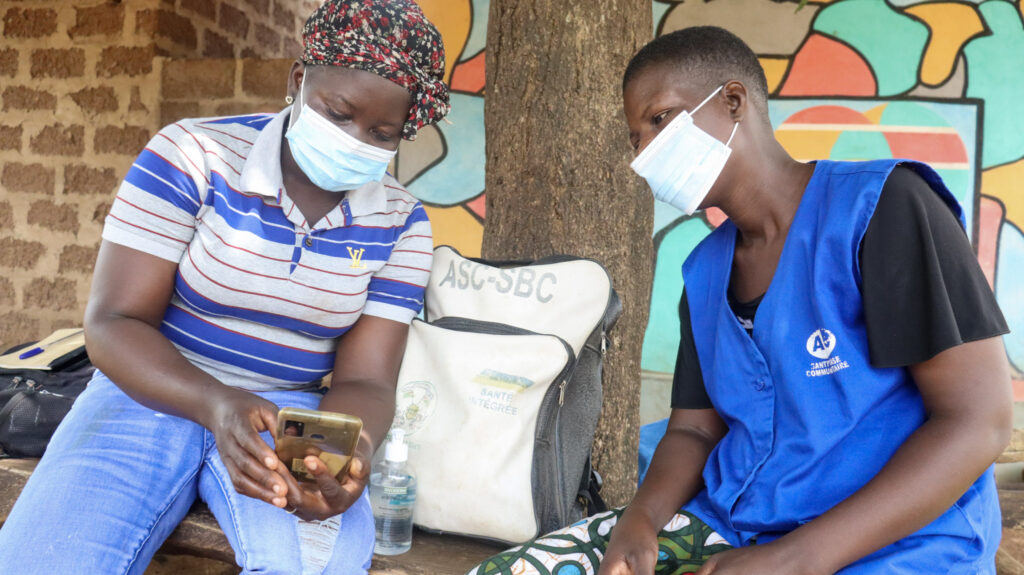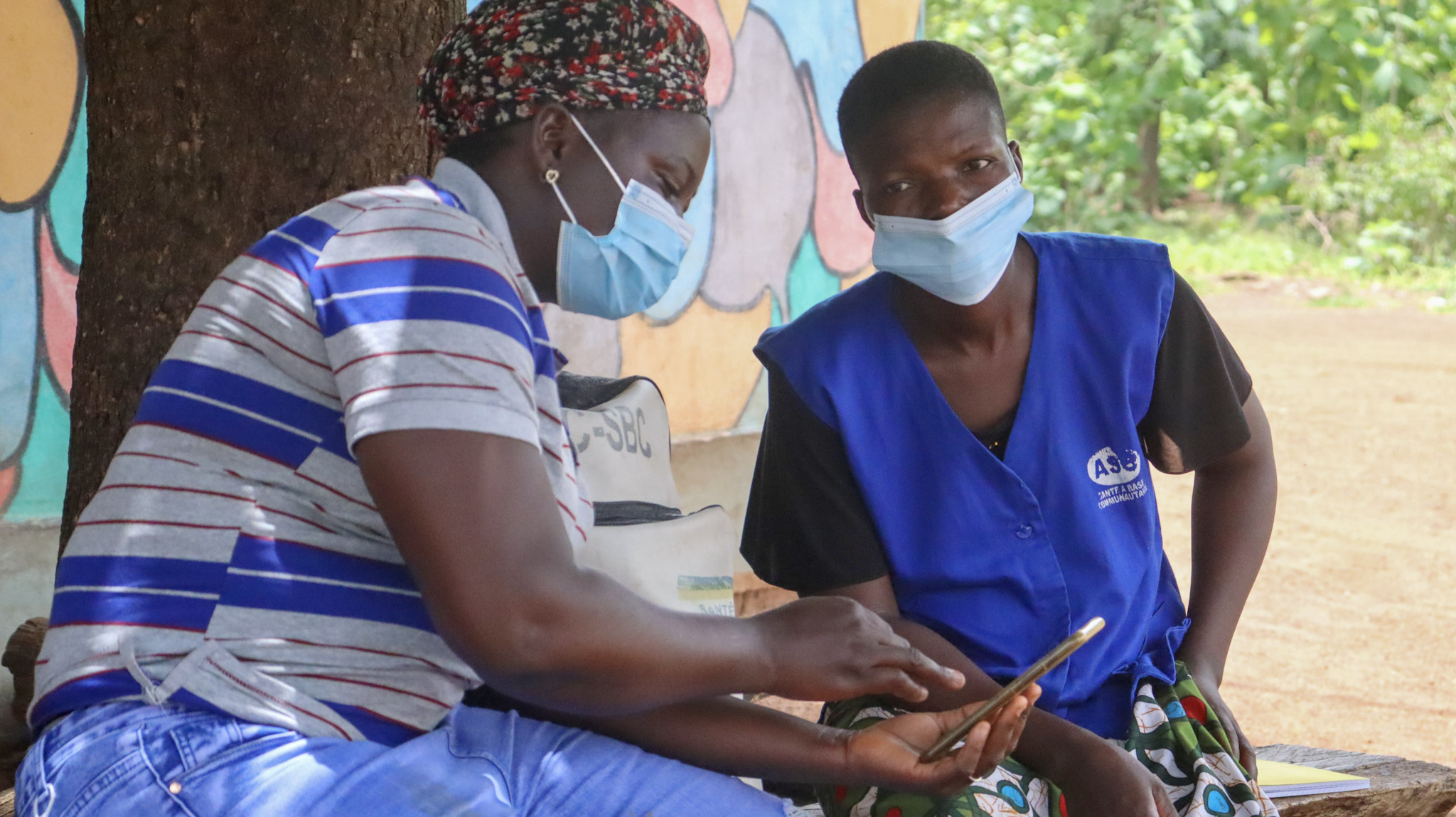It is early in the morning when Gisèle Talabia heads out on her bike to the Nawaré community, a small village located in the Dankpen district. Her safety equipment includes a helmet, which she wears over a colorful headscarf, and boots that were provided to community workers like her to ensure their safety while biking. When she reaches the village, she is greeted by herds of goats and sheep roaming around. It is market day and, on that sunny morning, the village is quiet and appears deserted.
As a Community Health Worker Supervisor, Gisèle often visits Nawaré to meet with Community Health Workers assigned to the village and its neighborhood. That day, she came to supervise a Community Health Worker, Konoutab Mitchore, during her rounds and was particularly interested in discussing the use of the ThinkMD application.
Collecting health data: from paper to cell phones
After the launch of the Integrated Primary Care Program in the Dankpen district in July 2019, Integrate Health saw an increase in CHW activities. The number of consultations as well as the number of children under five and women who received treatment increased. In order to effectively monitor community visits and other community activities, Integrate Health provided paper forms for CHWs to complete and track their work. These forms were collected, verified by supervisors, and then transferred to the Monitoring, Evaluation, and Quality Improvement (MEQI) team as part of the data management process.
However, as CHW activities continued to increase, CHWs were tasked with completing multiple forms per day, sometimes more than ten forms at the end of each workday. Over time, it became apparent that CHWs were overwhelmed by the amount of paper forms they had to carry in their backpacks during home visits-this in addition to their medical supplies. Not only were the CHWs’ bags heavy to carry, but some forms were getting lost, affecting the quality of the data collection process.
The ThinkMD smartphone application was developed to help solve this problem. This clinical assessment tool, co-developed by Integrate Health and ThinkMD, was launched in 2020. It is meant to help CHWs manage their work, by guiding them through patient consultations. The application guides CHWs through a series of questions about patients’ health and symptoms and supports CHWs to diagnose, treat, and refer patients for advanced care. In addition, the smartphone application stores all consultation data and syncs with the IH server, eliminating the need for CHWs to carry large binders and registers and fill out paper forms.
Helping Community Health Workers and Supervisors
This is why Gisèle is so eager to talk to Mitchore about her use of the ThinkMD application. Sitting in the shade of a mango tree on traditional wooden seats, Gisèle and Mitchore take advantage of the quiet surroundings to discuss the activities of the day. While observing Mitchore working on her smartphone, Gisèle makes sure to provide all the support and feedback Mitchore needs to help her improve her use of the app. Gisèle pays close attention to what Mitchore is doing. It is indeed crucial that the application is used correctly, as it ensures the accurate tracking of the CHWs’ monthly activities, which is then sent to the MEQI team for analysis.

With the ThinkMD application, supervisors like Gisèle can follow, in real time, the different steps a CHW takes during a consultation. Smiling behind her mask, Gisèle shares, “The ThinkMD tool makes the CHW’s job easier. Even our supervision now seems easier because we are sure that the CHW is correctly following the different steps of the consultations. It also allows us to follow up on their actions in the field. Thanks to the quarterly refresher training, I can tell you that the margin of error has been greatly reduced. This considerably improves not only the work but also the skills of the CHWs and makes our supervision more fluid.”
For Integrate Health, tools like the ThinkMD application appear more and more to be a good alternative to paper-based data collection. This shifts the focus of the CHWs to providing quality care rather than filling out forms. Created for patients, health workers, and researchers, mobile applications for clinical assessment improve health procedures and lead to significant gains in terms of costs and time.

